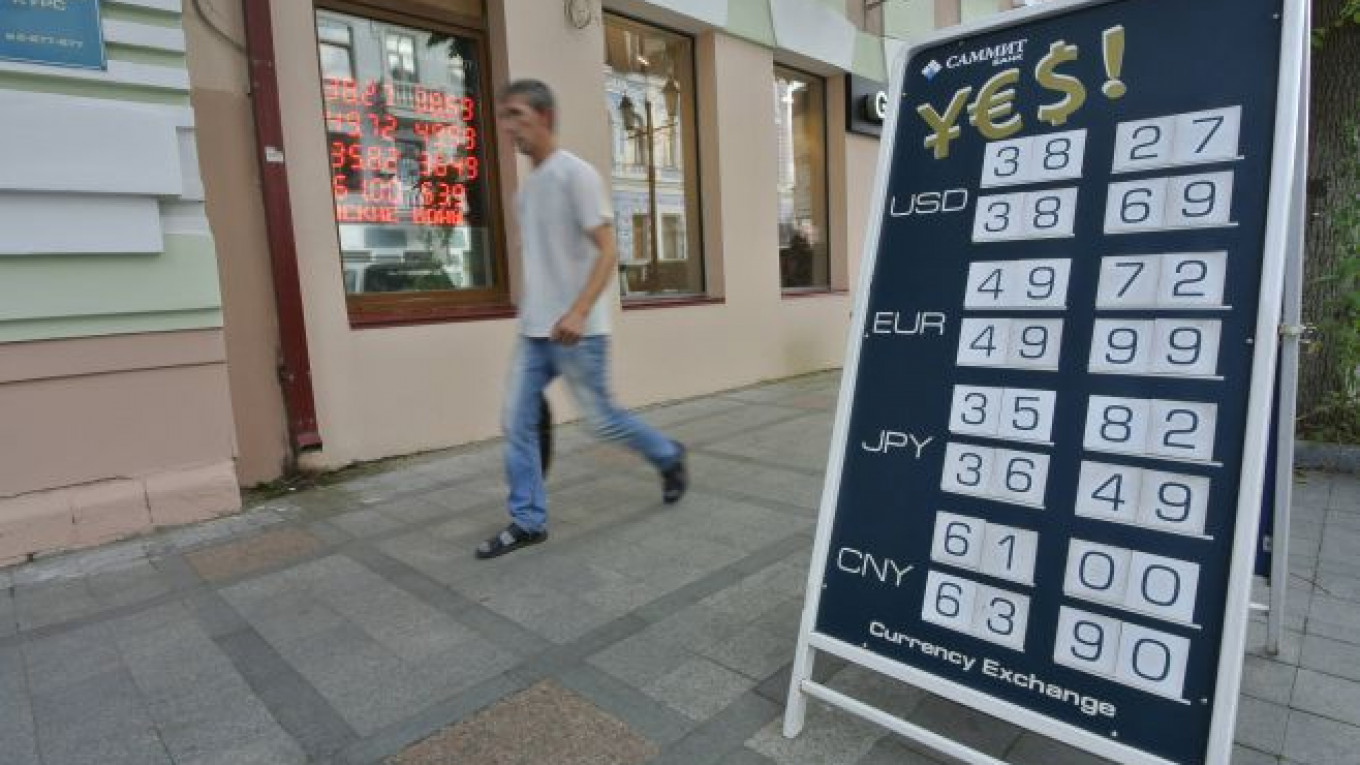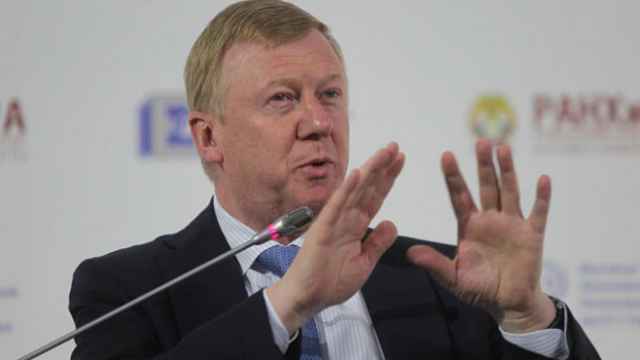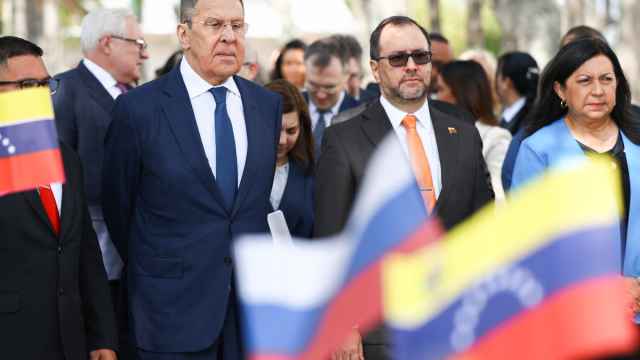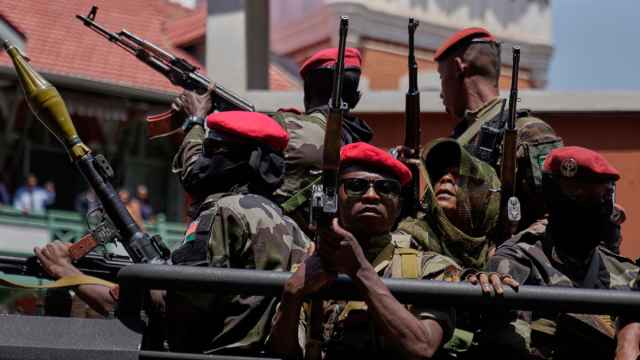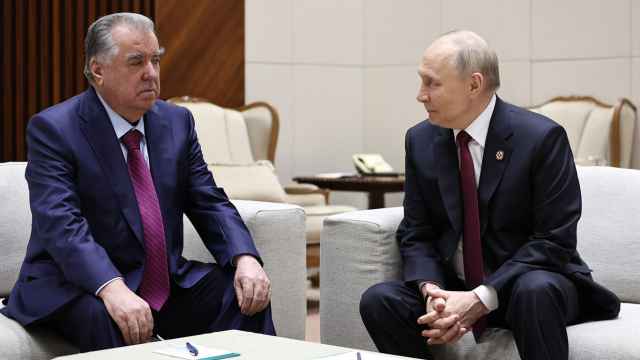The European Bank for Reconstruction and Development warned on Thursday that the crisis with Russia and Ukraine could erode some of the "peace dividend" eastern Europe gained when the Cold War ended.
It came as the organization shaved another slice off its regional growth forecasts for the year, predicted Russia would dip into recession in 2015 and urged the European Central Bank to consider quantitative easing.
The EBRD, which monitors central and eastern Europe and some of Europe's neighbors in Asia and North Africa, trimmed 0.1 percentage point off its 2014 forecast for the overall bloc to leave it at an anaemic 1.3 percent and less than half it was at the start of the year.
"The region is in the heavy shadow of the Ukraine-Russia crisis," said EBRD Chief Economist Erik Berglof. "The forecasts are subject to an exceptional degree of uncertainty and downside risks to the economic outlook are high."
Ukraine, whose crisis with Russia is seen as the primary risk, is now expected to see 9 percent plunge in its economy this year versus 7 percent forecast in May.
The development bank made no changes to its previous prediction that Russia will stagnate this year but said it now expected it to see a mild -0.2 percent recession next year.
There was a broader warning though about the Cold War-tinged tensions. Having been falling for years, military spending is starting to rise again in Russia and Ukraine, and similar noises are being made elsewhere in Europe.
This means potentially less money available for improving infrastructure and other economically beneficial investments.
"Permanently higher military spending in the transition region over the medium term, in response to the renewed geopolitical risks, could erode the peace dividend from the dissolution of the Soviet Union," the EBRD said.
"We would argue it is also quite important in the rest of Europe if you listen to the conversations around defense spending, or even in the UK," Berglof told reporters.
ECB Quantitative Easing Compelling
One brighter spot was a 0.5 percent growth forecast upgrade for Turkey, to 3 percent this year. It is one of the EBRD's other big countries of operation and reverses a large chunk of the cuts it saw earlier in the year.
In central and eastern Europe, forecasts for Poland, Hungary, Slovenia and Slovakia were all nudged up despite the uncertainty in Ukraine.
"We see in Turkey an improvement in both the internal balancing and the external rebalancing, so even though growth is slower (than in the past) we think the drivers are healthier."
The Cold War-tinged unrest, however, was not the only source of downward pressure the EBRD identified.
High levels of bad loans are prevalent, most notably in ex-Yugoslav states, Bulgaria and Romania and economic recovery in the euro zone — eastern Europe's biggest trade partner — has turned out to be disappointing.
It became the second international institution this week after the OECD to call for the European Central Bank to use quantitative easing — economist speak for printing money.
"The case for quantitative easing (QE) has become compelling to support the still fragile recovery in the Eurozone, to which much of the CEB and SEE regions are strongly linked," the EBRD said.
"An effective euro zone QE may help lessen the risk of setbacks in the recovery of those regions."
A Message from The Moscow Times:
Dear readers,
We are facing unprecedented challenges. Russia's Prosecutor General's Office has designated The Moscow Times as an "undesirable" organization, criminalizing our work and putting our staff at risk of prosecution. This follows our earlier unjust labeling as a "foreign agent."
These actions are direct attempts to silence independent journalism in Russia. The authorities claim our work "discredits the decisions of the Russian leadership." We see things differently: we strive to provide accurate, unbiased reporting on Russia.
We, the journalists of The Moscow Times, refuse to be silenced. But to continue our work, we need your help.
Your support, no matter how small, makes a world of difference. If you can, please support us monthly starting from just $2. It's quick to set up, and every contribution makes a significant impact.
By supporting The Moscow Times, you're defending open, independent journalism in the face of repression. Thank you for standing with us.
Remind me later.


